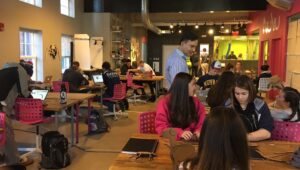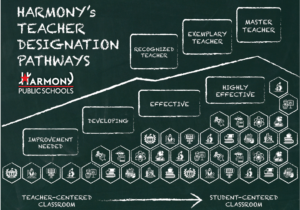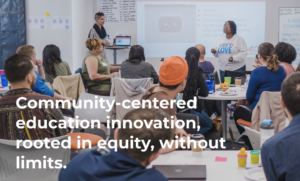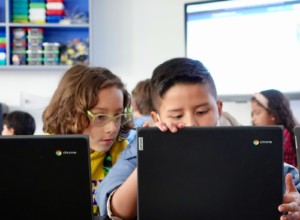Innovating or incrementing?
The NYTimes asks Can governments till the fields of innovation? The story profiles John Kao who recently launched The Institute for Large Scale Innovation (ILSI) founded to address three key questions:
· How can innovation be fostered most effectively at a societal level (country, region, city)?
· How can innovation be harnessed to address complex global challenges, and how should innovation stewardship work at a global level?
· How can international collaboration and alignment be encouraged in explosively growing new areas of scientific, technological and human design innovation, such as cleantech, nanotechnology and others?
The ILSI believes that:
new innovation strategies, supported by tools, skills and best practices are required as we move into a new kind of global innovation economy that is being born at a time of unprecedented disruption and turmoil. It is also a time when new models of how innovation can serve the global interest are needed.
I’d like you to contrast this line of thinking about large scale innovation with a 60 person task force calling for a “Broader Bolder Approach to Education.” They’ve been working for a couple years to develop a common vision and provide guidance to the reauthorization of the Elementary and Secondary Education Act. I appreciate these folks—nearly a third were grantees or partners in a prior life. Broader yes, bolder no—their site focuses more on what happens outside of school than inside. It’s a soft agenda, careful not to offend. It’s weak on accountability, silent on choice, void of innovation, and long on wrap around services. Rumor has it that they’ll be releasing a policy agenda this week—I’m afraid it will be a big yawner.
Rather than incremental reforms, Kao advocates for orchestrated public/private design and investment in new tools and delivery strategies. Secretary Duncan talks about innovation, but is far more constrained than his colleagues in energy, health, and the military in terms of his ability to invest in new tools and approaches.
There’s a growing cadre of outsiders contemplating strategies for Hacking Education, the title of a recent a conference. They recognize the emerging learning ecosystem—virtual education, direct-to-consumer learning services, and peer-to-peer learning—and it’s potential to augment or displace much of the current public delivery system. If you read the conference transcript, you’ll appreciate the potential for rethinking how kids learn. I bet if my friends at Broader Bolder invited Koa and a couple hackers to their next meeting, they’d end up with an agenda that lived up to the name.
I spent Friday in a New York City high school while students took a series of paper and pencil multiple choice exams. A sign in the lobby prohibited anything electronic—phones, iPods, laptops. We can do better than this; our kids already live in a different world. It’s time to create a new generation of schools—more accurately learning experiences—that prepare them for the world they’ll inherit.
We have a big design problem—our education system can’t do what we need it to do especially for the least advantaged young people. Closing failing schools and scaling ‘what works’ will make things less bad in urban America—great first steps—but we really need an American education innovation agenda that includes:
· National standards: key to productive public and private investment
· A DARPA for learning tools connected to an edu-innovation fund-of-funds
· Reduced barriers for innovative models
· A variety of performance-based employment options
· Need based funding that follows students to the school of their choice
That would be large scale innovation—a broader bolder approach.






0 Comments
Leave a Comment
Your email address will not be published. All fields are required.